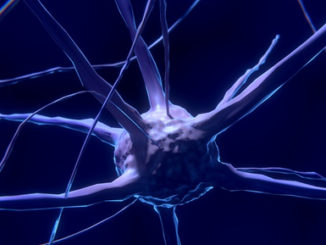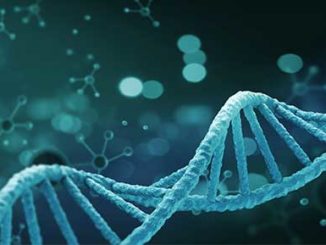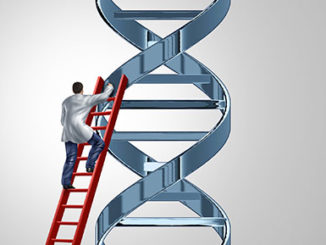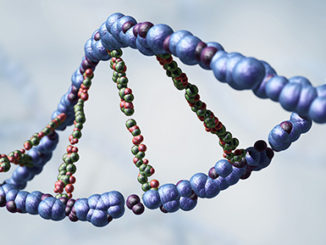What is Epigenetics technical articles are geared towards epigenetic research techniques, news, and trends in the field of epigenetics, written by scientists from universities and institutions including UCLA, Hofstra, NIH, Johns Hopkins, and more.
Explore in detail new epigenetic research techniques and tips for topics like next-generation sequencing (NGS) in epigenetics, m6A RNA methylation, CRISPR/Cas9 system epigenetic editing, chromatin immunoprecipitation (ChIP) protocol optimization, and single-cell epigenomics methods.
Want to share your research? Submit your own epigenetics article to be featured.
The neurotransmitter serotonin (also known as 5-hydroxytryptamine (5-HT)) has an absolute vast array of functions across the human body. Most commonly known to regulate mood, it is also key for the development of neurones. In fact, serotonin is linked to various mental disorders, including depression, which globally affects more than 300 million people. It has long been assumed that serotonin has an indirect role in relation to epigenetic regulation1. The binding of serotonin to its receptor(s) causes a downstream cascade [more…]
As the world’s population ages, the demand for organs and ways to optimize the transplant process will only grow. While the exact interactions between different factors must be elucidated further, it is clear that allograft rejection is partially mediated by epigenetic mechanisms such as histone acetylation, DNA methylation, and microRNAs. This framework is useful when applied to the host and the graft as well as to the immunologic and nonimmunologic reasons for rejection. At this time individualized treatment is limited [more…]
Chronic kidney disease (CKD) affects 20 million people in the United States and an estimated 8 to 16 percent of the world’s population. It is known that anomalous DNA methylation, aberrant histone alterations, and changes to microRNA expression all contribute to its pathogenesis. These epigenetic factors are crucial to the development and proper functioning of the kidneys. The manner and extent to which these factors modulate inflammation, fibrosis, and the transition of mesenchymal to epithelial cells is still being elucidated. The [more…]
The human body is made up of about 100 trillion cells, but not all these cells are ‘real’ human cells. About one-tenth, in fact, are tiny organisms like bacteria, fungi, and viruses that live within us and on us. These organisms are collectively known as microbes and they play an essential role in human health and disease. Yet, exactly how they function and are affected by environmental changes is not entirely understood, and even less is known about how the [more…]
DNA methylation is an essential epigenetic mechanism that plays a critical role in the regulation of gene expression during embryonic development. The erasure of Tet-oxidized 5-Methylcytosine (5-mC) is not only important during the reprogramming steps but as well as the cell differentiation stages of development. In their study, Kweon et al. (2017) have shown that the SOS response-associated peptidase domain protein, SRAP1, binds to Tet-oxidized forms of 5-mC in DNA and selectively cleave DNA containing Tet-oxidized 5-methylcytosine. They also reveal [more…]
It is a challenge to determine a cause and effect relationship between a distinct epigenetic mark and the ultimate behavior and function of the affected cell. However, CRISPR/Cas9 has provided the opportunity for investigators to manipulate the epigenome and observe the effects that it may have on cell function, development, and differentiation. The CRISPR/Cas9 system has been further expanded with the engineering of the nuclease-deficient version, dCas9, which can be used to directly manipulate a specific regulatory region or epigenetic [more…]
Neurogenesis is a highly coordinated process with sequential waves of tightly controlled changes in gene expression. N6-Methyladenosine (m6A), is believed to play a role in the epitranscriptomic mechanism that controls mammalian cortical neurogenesis. M6A is the most abundant modification in mRNA and is found in most eukaryotic cells. It is installed by the methyltransferase complex, consisting of methyltransferase-like 3 (Mettl3) and methyltransferase-like 14 (Mettl14) as the SAM-binding sub-unit. The role of m6A modification in cancer has previously been investigated. Now, [more…]
Although cells have the same genetic material, they can function differently. Single-cell RNA sequencing has revealed how heterogeneous the transriptome of an individual cell may be with a homogeneous cell population or tissue. Single-cell genome sequencing has provided insights into genomic variations that occur in physiology and in diseases. Today we can probe the majority of epigenetic dimensions with single-cell resolution through multiple methods (Table 1). Studying individual cells offers insight into molecular components of the genome and its functional [more…]
Every day our cells undergo substantial amounts of DNA damage from exogenous and endogenous sources. UV light, in particular, can cause an estimated 100,000 lesions per cell every day. Left unrepaired, these DNA lesions could lead to induction of senescence, cell death or mutations, which could be responsible for the development of cancer, neurodegeneration and several other diseases. However, our organisms have developed a mechanism to recognize the DNA damage caused by UV light and other damaging agents, in the [more…]
Have you ever thought of how the day-night cycle can epigenetically affect plants? Latest research from Zhang et al. has shown a possible mechanism of how histone variants can negatively regulate gene expression in day-night cycles of rice seedling tissues. This paves a way for an exciting area of research of how histone variants can be differentially deposited in a very short time span, in order to fine tune the transcription due to the environmental stimuli in plants. Histones variants, [more…]











